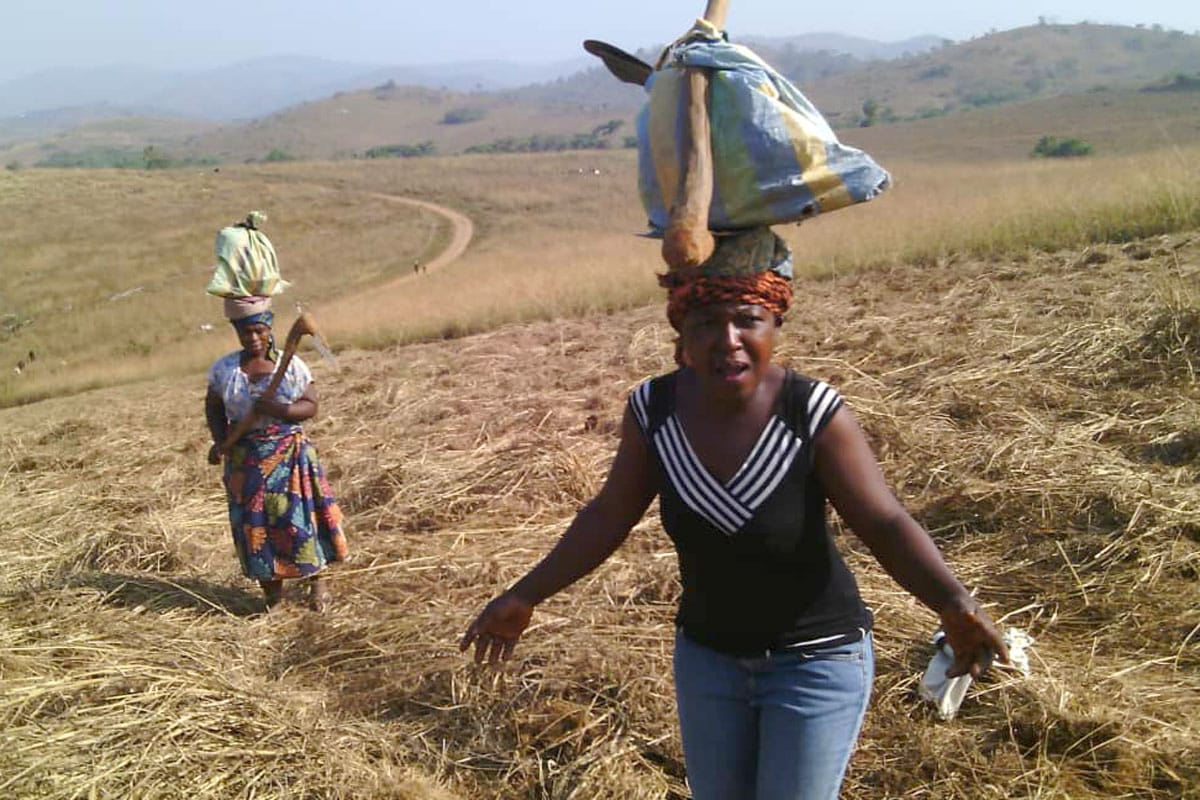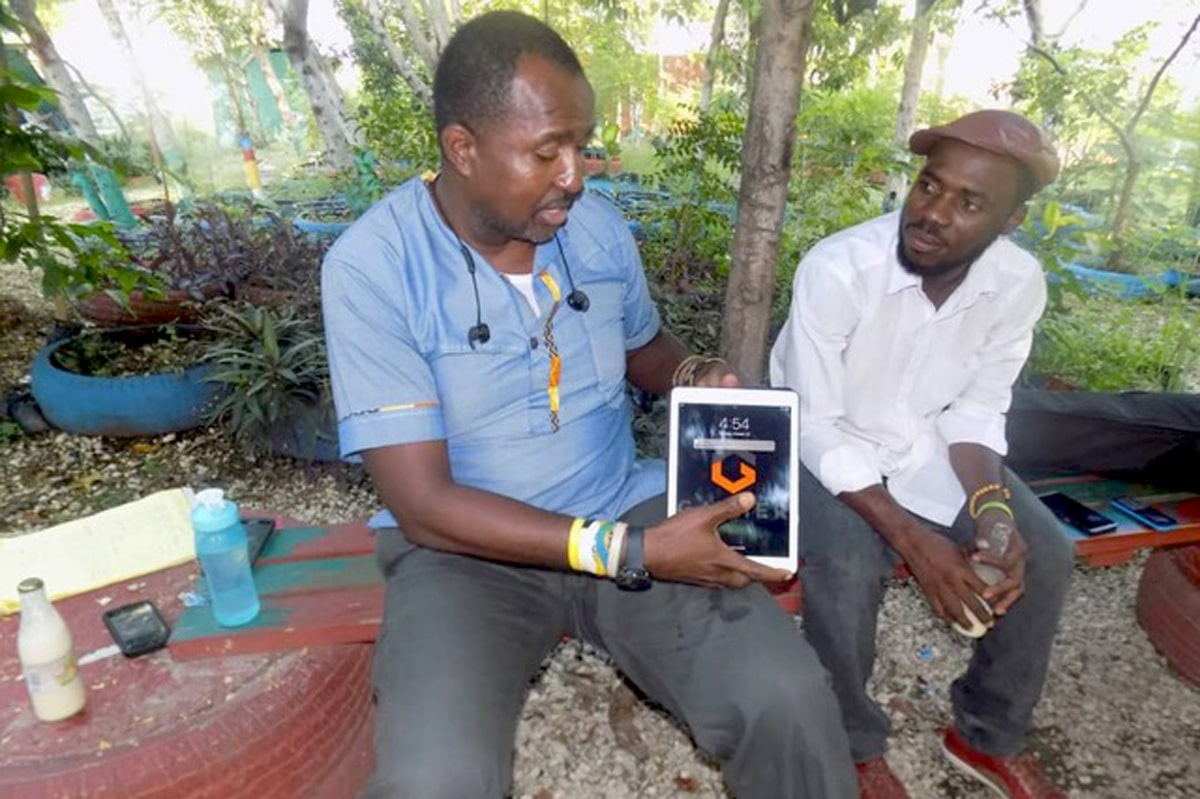GATHER Alum Supports Community Amidst Conflict in Cameroon
By Jimmie Briggs, Director of Learnign
In the last two weeks alone, more than 8,000 Cameroonian refugees have streamed across the border into neighboring Nigeria, fleeing an increasingly high intensity conflict between the national government and English-speaking militias seeking to form a breakaway state called “Ambazonia.” For Global GATHER alumnus Alexander Gwanvalla, the deteriorating situation has placed ever greater burdens on the work of his organization, Community Green Engagement. Speaking by phone last weekend from northwest Cameroon where he lives and works, Alexander described a crisis situation with food and resources rapidly dwindling.

“Farming activities are mostly carried out in rural areas and due to the deadly clashes happening now between soldiers and militias, farmers have fled and abandoned their farms,” he explained.
“This has resulted in dire food shortages because the food sources are no longer available. There is a state of insecurity, some of our members are also fleeing the country, and we are also facing ‘lockdown’ days where we cannot leave our homes and go to work because of the danger.” -- Alexander Gwanvalla
In total, 60,000 Cameroonian refugees have left the country for Nigeria, and even to the United States.

In practical terms, constant gunfire and risk of other physical violence by one of the warring groups makes it next to impossible for Alexander and his colleagues to meet with community decision-makers and thought-leaders. During last week’s elections on February 9, separatists from the English-speaking part of the country imposed a six-day lockdown on all civilian movement and reiterated their demand that English-speaking senators and parliamentarians quit the national senate and parliament. They’ve consistently threatened the lives of individuals who engage the legislative bodies in any way.

Last December, Cameroon’s parliament granted special status to the northwest and southwest regions of the country, which are predominantly English-speaking. Despite those concessions toward autonomy, the militias have pushed back for years against perceived disenfranchisement by the country’s French-speaking majority. The struggle for independence by the insurgents has been the biggest challenge for President Paul Biya, in power for four decades, even as the country faces off against Boko Haram terrorists who’ve long ravaged the Lake Chad Basin.
Though his work with Citizens Climate Lobby has been dramatically hampered since 2017, Alexander and his community allies continue to create impact in their region, in spite of the existential challenges.
“We have continued to focus on building our community assets via consultation and this approach has been welcomed,” Alexander said.
“We usually carry out our activities during days that are calm and mostly in areas not really hit by the crisis. Normally, we take all precautions before going out. So far, we have planted trees, installed beehives, and hosted radio programs on the rights of the child at a local radio station.” -- Alexander Gwanvalla
The conscription of child soldiers by militia poses a threat to a community’s youth.
“Food, food is a biggest challenge now,” he continued, “being able to access it as the fighting goes.”
Thank you to those who stand with Haiti
By Daniel Tillias, Goldin Global Fellow, Haiti
A letter to the Goldin Institute's global network of champions for community driven social change on the 10th Anniversary of the earthquake in Haiti
Thank you for keeping your promise.
After the earthquake, ten years ago, a lot of promises were made. I remember people saying that out of this terrible tragedy a new way of doing things, a true solidarity with Haitians, would emerge. They said we would “build back better.”

But too often and so unfortunate this did not happen. Only a tiny percentage of the resources pouring into Haiti after the earthquake went to grassroots Haitian-led groups like SAKALA, the people who were in the best position to know the conditions on the ground. Too often groups like SAKALA were forgotten and we continue to be forgotten by some of the largest donors.
But you did not forget us. Time and again we have treasured not only your support but THE true solidarity – the tougher the times, the more you are there for us.

I am SAKALA, the children in Cite Soleil are SAKALA , you are SAKALA , we are all SAKALA, all together we contribute to the only promise that has been kept, not the charity one but the solidarity one. The one that allows SAKALA to continue being home of the largest urban garden in the country, the hub supporting the largest waste revalorization initiative in the country, the place where butterfly, dragonfly and birds to share with the children there the hope they can fly and will.

Thank you for this solidarity, thank you for inspiring such a difference in Cite Soleil my home town. Happy New Year of continuing effort making the New beginning of Haiti happening in Cite Soleil.
Be the change!
Daniel

